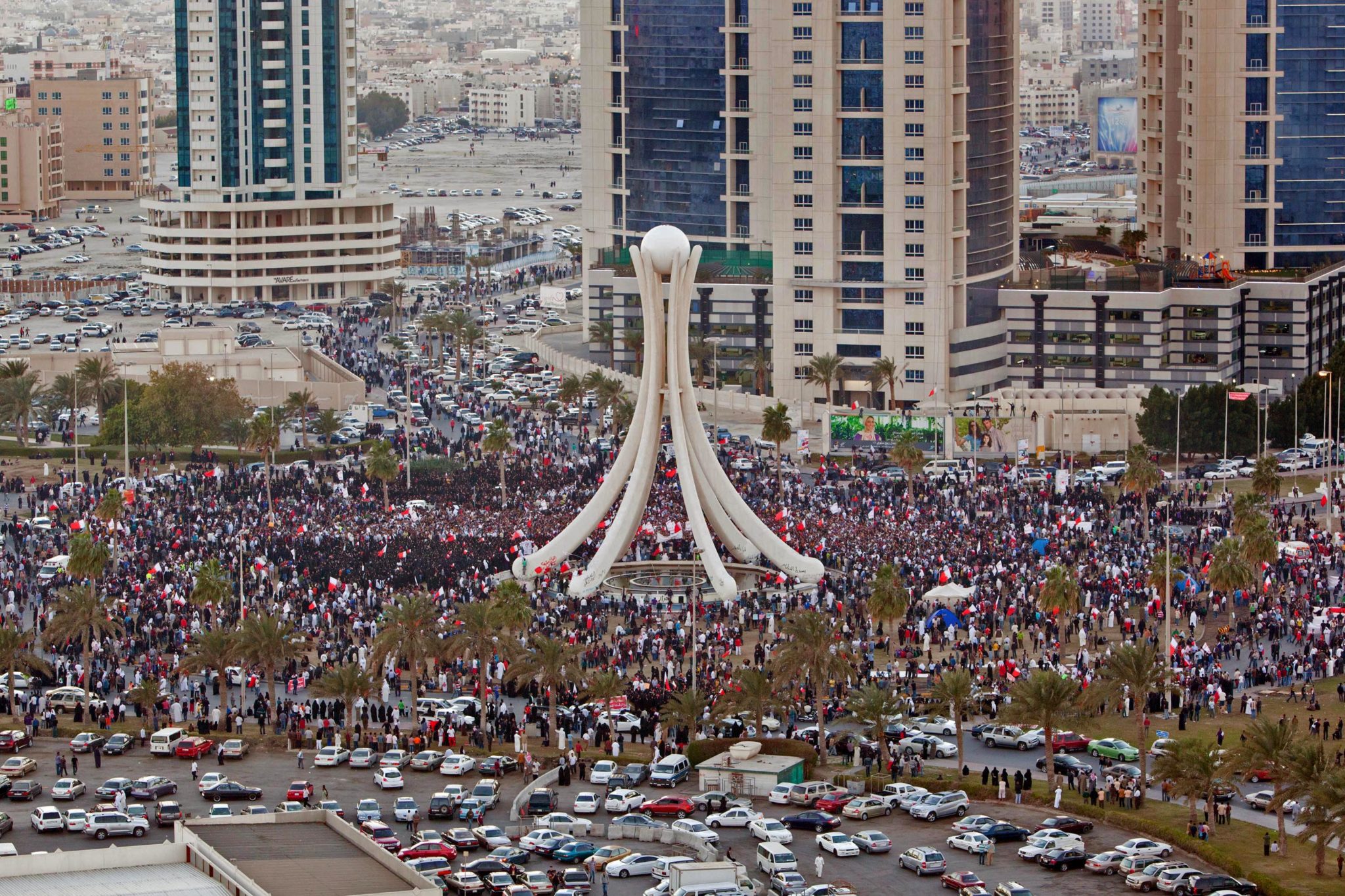14 February 2018 – Today, we in the Bahraini human rights community commemorate the seventh anniversary of the 14 February 2011 protest movement calling for democratic reform and respect for human rights in Bahrain, and we condemn its violent suppression by the government. Seven years later, the situation in Bahrain is worse even than in 2011, with the authorities engaging in widespread and systematic human rights violations with continued impunity. We take this opportunity to call on the Government of Bahrain to immediately end these abuses, and urgently institute comprehensive human rights and political reforms with a view toward accountability, transparency, and guaranteeing internationally recognized universal human rights standards.
Seven years ago, more than 200,000 people took to the streets in Bahrain to protest structural inequalities, corruption, oppression, and a lack of government representation. The authorities responded swiftly and severely. Security forces employed excessive and indiscriminate force to disperse the demonstrations, and the government imposed emergency restrictions on basic rights to suppress the movement. Assisted by a joint Gulf Cooperation Council (GCC) military force – containing personnel primarily from Saudi Arabia and the United Arab Emirates, but also including smaller contributions from Qatar and a naval force from Kuwait – Bahraini authorities violently put down the peaceful uprising, leading to thousands of arrests, hundreds of injuries, and dozens of deaths.
Following the crackdown, and under international pressure, King Hamad bin Isa Al Khalifa commissioned the Bahrain Independent Commission of Inquiry (BICI) to investigate the unrest. The BICI found that Bahraini authorities had committed severe abuses – from mass arbitrary detention to torture and extrajudicial killing – and that a “culture of impunity” protected perpetrators in the government. After the BICI issued a series of urgent reform recommendations to address immediate concerns in the security sector and legal system, the king accepted the proposals and pledged that they would be rapidly implemented.
Seven years later, however, the government has not only failed to fully undertake the reform package – it has actively reversed what few recommendations had been temporarily instituted. In 2017, the government restored authority to Bahrain’s secret police force, the National Security Agency (NSA), and ended a de facto moratorium on the death penalty by executing three torture survivors after a trial rife with due process violations. These measures contravene in practice and spirit the only two BICI recommendations the government had fully implemented, namely to revoke arrest powers from the NSA and commute death sentences arising out of the unrest.
In other cases, the authorities have institutionalized or intensified the abusive practices meant to be rectified by the BICI recommendations. Since 2011, the Bahraini government has expanded the counter-terror law and amended the penal code to further criminalize free expression and critical speech, targeting human rights defenders and political activists with arbitrary prosecution. It has forcibly dissolved all major opposition groups and has indefinitely suspended the only independent newspaper. In May 2017, security forces launched the kingdom’s bloodiest protest raid in decades when they killed five demonstrators at a sit-in around the home of the most prominent religious leader in Bahrain’s marginalized Shia Muslim community, which also faced escalating ethno-religious discrimination. The demonstrators were peacefully protesting the government’s decision to arbitrarily revoke citizenship from the cleric, Sheikh Isa Qassim – just one of the nearly 600 cases of arbitrary denaturalization since 2012.
And, in possibly the most worrying evolution of the repressive measures of 2011, the king amended the constitution itself to allow the Bahrain Defence Force military courts to try civilians in April 2017. In contrast with the notorious National Safety Courts that imprisoned leading human rights defenders and opposition figures during the uprising, the king has now enabled the standard military judiciary to hear cases against civilians even without a state of emergency. Since the amendment, the courts have contributed to a dramatic increase in the death row population, and military personnel have begun to face renewed allegations of torturing civilian detainees for the first time since 2011.
Seven years ago, international pressure was critical to the establishment of the BICI and the acceptance of its recommendations. However, in the interim, the international community has lost its focus on the rising crisis in Bahrain, failing to keep to pace with the government’s near-total abandonment of that original reform effort.
Therefore, on the anniversary of the 2011 protest movement, Americans for Democracy & Human Rights in Bahrain (ADHRB), the Bahrain Institute for Rights & Democracy (BIRD), and the European Centre for Democracy and Human Rights (ECDHR) call on the international community to re-center its attention on the kingdom’s rapidly deteriorating political situation and to press the Bahraini government to immediately implement emergency reforms ending its extreme repression of basic human rights.





